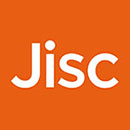Cy Près Settlements in Privacy Class Actions
Abstract
This essay considers the potential for using cy près settlements in privacy class actions. These settlements are a procedural mechanism to overcome distribution challenges in class actions. When it is too burdensome to prove individual claims or too costly to distribute damages to class members, courts on occasions award damages to a charity or non-profit organization involved in work serving the class members’ interests. These controversial settlements have been gaining attention in various legal systems. The U.S. Supreme Court recently considered their propriety in Frank v. Gaos, while courts in Canada and several Latin American countries have been experimenting with cy près as well. The essay uses these cases to explore how this procedural mechanism can be particularly useful in privacy class actions. While cy près settlements require proper judicial supervision to prevent abuse, the chapter concludes that they can help to deter privacy invasions, enforce privacy laws, and provide plaintiffs with some measure of indirect relief when those laws are violated.
Downloads
References
Ben-Shahar, O. y Porat, A. (2018). The Restoration Remedy in Private Law. Columbia Law Review, 118, 1901-1952.
Berryman, J. y Carroll, R. (2013). Cy-Pres as a Class Action Remedy—Justly Maligned or Just Misunderstood? En Barker, K. y Jensen, D. (eds.), Private Law: Key Encounters with Public Law (pp. 320-365). Cambridge University Press.
Cofone, I. N. (2019). Nothing to Hide, but Something to Lose. University of Toronto Law Journal, 70, 64-90.
Cofone, I. N. (ed.). (2020). Class Actions in Privacy Law. Routledge.
Cofone, I. N. y Robertson, A. Z. (2018). Privacy Harms. Hastings Law Journal, 69(4), 1039-1099.
Cohen, A. A. (2019). Settling Cy Pres Settlements: Analyzing the Use of Cy Pres Class Action Settlements. The Georgetown Journal of Legal Ethics, 32, 451-468.
Draba, R. E. (2004). Motorsports Merchandise: A Cy Pres Distribution Not Quite ‘as Near as Possible’. Loyola Consumer Law Review, 16(2), 121-157.
Federal Trade Commission. (enero de 2020). Equifax Data Breach Settlement. www.ftc.gov/enforcement/cases-proceedings/refunds/equifax-data-breach-settlement.
Goodlander, J. (2015). Cy Pres Settlements: Problems Associated with the Judiciary’s Role and Suggested Solutions. Boston College Law Review, 56(2), 733-765.
Hillebrand, G. y Torrence, D. (1988). Claims Procedures in Large Consumer Class Actions and Equitable Distribution of Benefits. Santa Clara Law Review, 28(4), 747-773
Johnston, J. (2013). Cy Pres Comme Possible to anything is Possible: How Cy Pres Creates Improper Incentives in Class Action Settlements. The Journal of Law, Economics & Policy, 9, 277-303.
Jois, G. U. (2008). The Cy Pres Problem and the Role of Damages in Tort Law. Virginia Journal of Social Policy & the Law, 16, 258.
Jukier, R. (2015). The Impact of Legal Traditions on Quebec Procedural Law: Lessons from Quebec’s New Code of Civil Procedure. The Canadian Bar Review, 93(1), 211-250.
Jukier, R. (2018). Canada’s Legal Traditions: Sources of Unification, Diversification, or Inspiration? Journal of Civil Law Studies, 11(1), 75-104.
Jutras, D. (2009). Cartographie de la Mixité: La Common Law et la Complétude du Droit Civil au Québec. La Revue du Barreau Canadien, 88, 247-273.
Jutras, D. (2015). Alternative Compensation Schemes from a Comparative Perspective. En Bussani, M. y Sebok, A. J. (eds.), Comparative Tort Law: Global Perspectives (pp. 151-170). Edward Elgar Publishing.
Kalajdzic, J. (2013). The ‘Illusion of Compensation’: Cy Pres Distributions in Canadian Class Actions. The Canadian Bar Review, 92(2), 173-209.
Krueger, G. G. y Serotta, J. A. (2 de junio de 2008). Money for Nothing. Legal Times.
Lewis, K. M. (2019). UPDATE: Is Cy Pres A-OK? Supreme Court to Consider When Class Action Settlements Can Pay a Charity Instead of Class Members. En Congressional Research Service. https://fas.org/sgp/crs/misc/LSB10131.pdf.
Liptak, A. (26 de noviembre de 2007). Doling Out Other People's Money. The New York Times. https://www.nytimes.com/2007/11/26/washington/26bar.html.
Ormerod, P. C. (2019). A Private Enforcement Remedy for Information Misuse. Boston College Law Review, 60(7), 1893-1948.
Piché, C. (2018). Class Action Value. Theoretical Inquiries in Law, 19(1), 261-302.
Piché, C. y Saumier, G. (2018). Consumer Collective Redress in Canada. Japanese Yearbook of International Law, (61), 231-259.
Pomerantz, A. L. (1969). New Developments in Class Actions – Has Their Death Knell Been Sounded. Bus Lawyer, 25(3), 1259-1262.
Redish, M. H., Julian, P. y Zyontz, S. (2010). Cy Pres Relief and the Pathologies of the Modern Class Action: A Normative and Empirical Analysis. Florida Law Review, (62), 617-666.
Rodríguez Diez, J. E. y Zavala Achurra, M. E. (2019). Restitución e Indemnización a Sujetos Indeterminados, Cy-Près y Acciones de Clase. Revista Estudios Socio-Jurídicos, 21(1), 151-176.
Rotenberg, M. y Jacobs, D. (2016). Enforcing Privacy Rights: Class Action Litigation and the Challenge of Cy Pres. En Wright, D. y De Hert, P. (eds.), Enforcing Privacy: Regulatory, Legal and Technological Approaches (pp. 307-333). Springer.
Shepherd, S. R. (1972). Damage Distribution in Class Actions: The Cy Pres Remedy. Chicago Law Review, (39), 448-465.
Shiel, C. C. (2015). A New Generation of Class Action Cy Pres Remedies: Lessons from Washington State. Washington Law Review, 90(2), 943-991.
Slobom, M. J. (2018). Recalibrating Cy Pres Settlements to Restore the Equilibrium. Dickinson Law Review, 123(1), 281-306.
Trivisonno, C. (2016). Developing a Consistent Approach to Balance Distributions in Quebec. The Canadian Class Action Review, 11(2), 321-338.
Walker, J. (2018). Class Actions in Canada: Cases, Notes and Materials (2a ed.). Emond Publishing.
Yospe, S. (2009). Cy Pres Distributions in Class Action Settlements. Columbia Business Law Review, 2009(3), 1014-1064.
Copyright (c) 2021 Thomas E. Kadri, Ignacio N. Cofone

This work is licensed under a Creative Commons Attribution-NonCommercial-NoDerivatives 4.0 International License.
This license allows the copy, distribution, exhibition and representation of the work provided authorship is acknowledged and the work is properly quoted. Commercial use of the original work or the generation of derived works are not allowed.
The authors hereby guarantee the right to the first publication of the work to the Revista Jurídica Austral.
















































